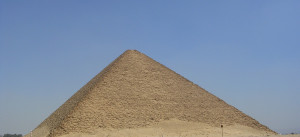Wealth is the ability to independently make lifestyle choices in accord with one’s needs, values, and goals, and do so in a way that provides for survival, security, freedom, and the opportunity for successful achievement of one’s chosen goals.
As discussed in the last article, trade-offs between lifestyle and income determine your ability to save, and the ability to save is a means to reach goal you set for yourself. You might be surprised to learn how few people understand this. Case in point: visit the Quora website and see how many questions go something like this: “I have saved $10,000. What should I do with it?” Did they not choose to save the money in the first place? Maybe they were “just supposed to”?
If lifestyle choice and work income determine your quality of life, then what is wealth?
Dictionary.com defines wealth as “a great quantity or store of money, valuable possessions, property, or other riches.” How does that align with Security? Freedom? Survival? Success?
Money can buy insurance. So, if I buy some, I have some security if there is a loss. If I sleep-in, instead of having to wake up early and go to work, because I saved enough to retire, I have the freedom to choose my morning activity. If I have almost no money, having even a few dollars means I will be able to buy some food to survive. If I save enough to send my  child to college, that is a success. What elements are common in each of these examples, and why are we now talking about money instead of wealth? While wealth is not just money itself, most manifestations of it can be obtained with money. Money functions as a store of value, a unit of account, and a medium of exchange.
child to college, that is a success. What elements are common in each of these examples, and why are we now talking about money instead of wealth? While wealth is not just money itself, most manifestations of it can be obtained with money. Money functions as a store of value, a unit of account, and a medium of exchange.
What if I decline the opportunity to earn money in exchange for something of greater value? How about my time? Is that not wealth? If I choose to live under a bridge rather than work because I enjoy living on the street more than I do working, is not living under a bridge a manifestation of wealth? One could say Mother Teresa had the richest of lives because she gave all she had in the service of others. This was wealth because she chose a lifestyle that enabled her to successfully meet her goals in life.
Therefore, with all of this in mind, here is my definition of wealth:
The ability to independently make lifestyle choices in accord with one’s needs, values, and goals, and do so in a way that provides for survival, security, freedom, and the opportunity for successful achievement of one’s chosen goals.
If I am just starting out in Muncie, I have only a limited ability to make lifestyle choices, and most of the early goals of saving money are to ensure my survival and some security. I do not have a lot of wealth, and I am young, but I have much time and potential for growth. I have human capital. This is one of the more important aspects of personal finance: when we are young, we have an excess of human capital, and a shortage of financial capital. In old age, it is the reverse.
Do you remember learning in school about Maslow’s hierarchy of needs? Abraham Maslow wrote a paper in 1943, which illustrated, using a pyramid, a hierarchy of needs fulfillment. At the base of the pyramid were physiological needs, like food and shelter. I make no food comparison between caviar at the Ritz, and a steady diet of Government cheese in a van down by the river. At the next level up was safety, which includes security. Then we had higher levels including love and belonging (social), esteem (contribution to society/respect from others), and self-actualization (meeting one’s highest aspirations).
If we consider a definition of wealth aligned with Maslow’s hierarchy, we can take more of the intangibles of wealth into account. If you achieve all of the various levels on the  pyramid, it does not always bear a relationship to the amount of money you have available or have spent. For example, how many wealthy people have died without doing anything meaningful, and after frittering away inherited money? How many poor people lived most of their lives seemingly at the bottom of the pyramid, yet they earned great respect or achieved all of the societal contributions they sought to accomplish?
pyramid, it does not always bear a relationship to the amount of money you have available or have spent. For example, how many wealthy people have died without doing anything meaningful, and after frittering away inherited money? How many poor people lived most of their lives seemingly at the bottom of the pyramid, yet they earned great respect or achieved all of the societal contributions they sought to accomplish?
Wealth is therefore not just money, or the material things it buys. At the same time, money is a meaningful representation of wealth because it is a store of value, a way to defer consumption. Even so, the impact of more money to meet your needs and goals decreases the more you have. This means money has marginal utility. If you already have saved enough for retirement, you might choose to quit your high paying job rather than keep working 50 hours a week. The marginal utility of more money is not as great, so you may decide to retire because 50 hours of freedom every week is worth far more than more money. Contrast that lucky retiree with our Muncie upstart, for whom even a modest salary bump of $200 a month makes a huge difference in lifestyle, and therefore a huge difference in wealth as well. This is why, regardless of your income or money saved, living below your means is necessary to increase your ability to save money, or to otherwise have the freedom to climb Maslow’s pyramid and achieve your life goals.
Again, when you are young, you have more human capital than financial capital, and when you are older, you tend to have more money and less human capital. There are of course exceptions, but the point is that the human potential to earn and produce is the wealth of the young, and the accumulation of financial wealth tends to be an important goal, because for each of us, the day will come when there will be little human capital left.
The marginal utility of money is a function of both time and freedom. You have heard the saying “time is money,” right? This saying is off the mark. Time, money, and freedom are interrelated. Exercising your freedom to do a given activity requires the use of time. If you are spending 36% of all waking hours in a job you hate, is that freedom? Maybe. You might choose to work the 36% because that provides the freedom to choose what you do during the remaining 64% for a given lifestyle, or better still, the 36% time spent working is time spent on something fulfilling, like public service for example. If you choose a lower-paying job, but it is a job you love, and is in accord with your goals and values, you may have to work 50% or more of your waking hours, not 36%. But if you love the work, now you have 100% freedom, not 64%. You are exercising 100% freedom over 100% of your time. Time, money, and freedom are interrelated, and you are making another a lifestyle choice. Work choices are also lifestyle choices.
Old or young, living below your means and choosing a lifestyle in accord with your life goals is the key to wealth.
The most important first step for making life choices is to understand and apply to those choices this definition of wealth:
The ability to independently make lifestyle choices in accord with one’s needs, values, and goals, and do so in a way that provides for survival, security, freedom, and the opportunity for successful achievement of one’s chosen goals.

Leave a Reply